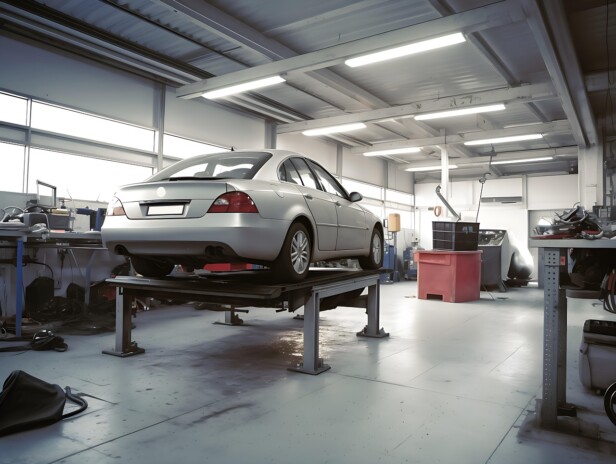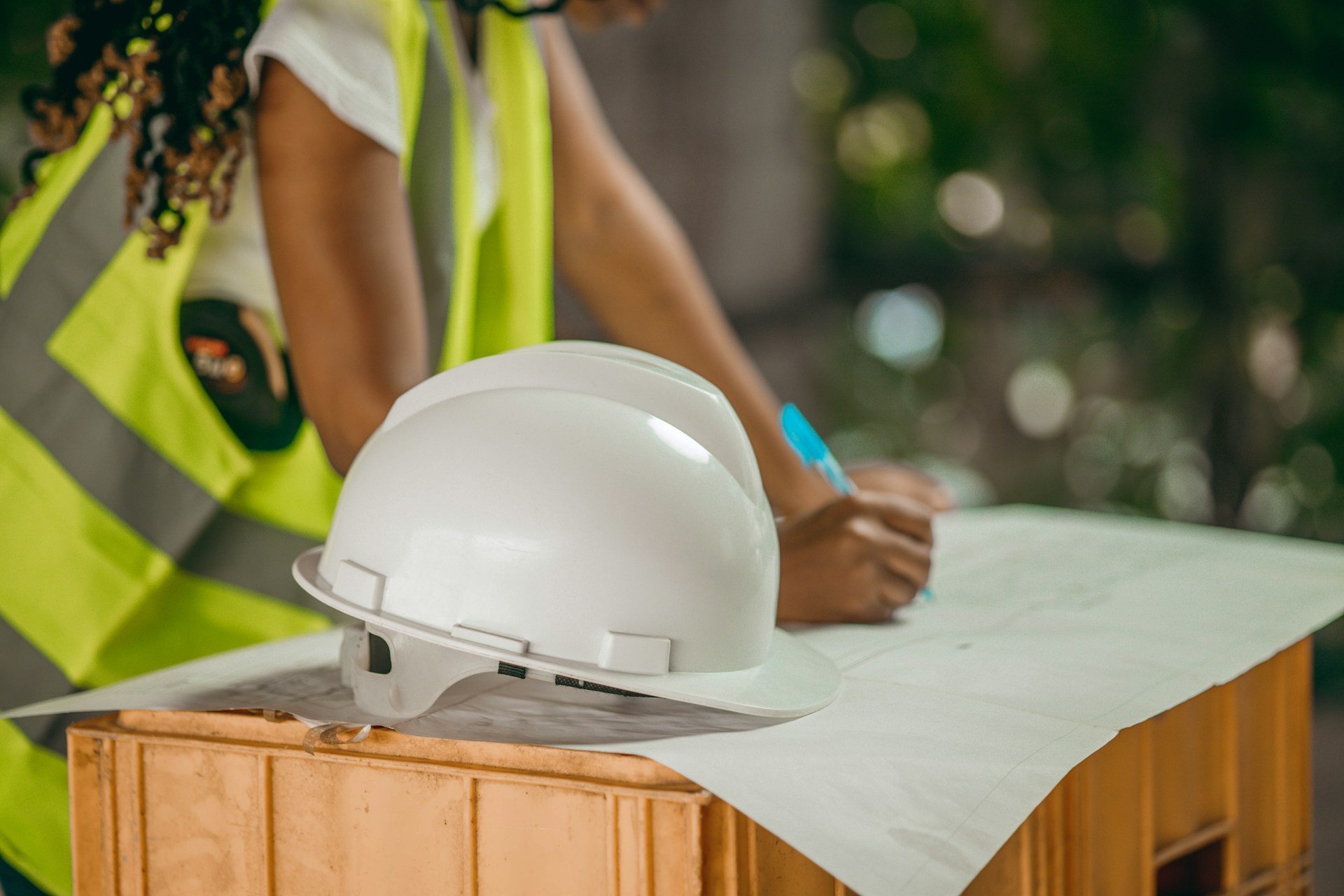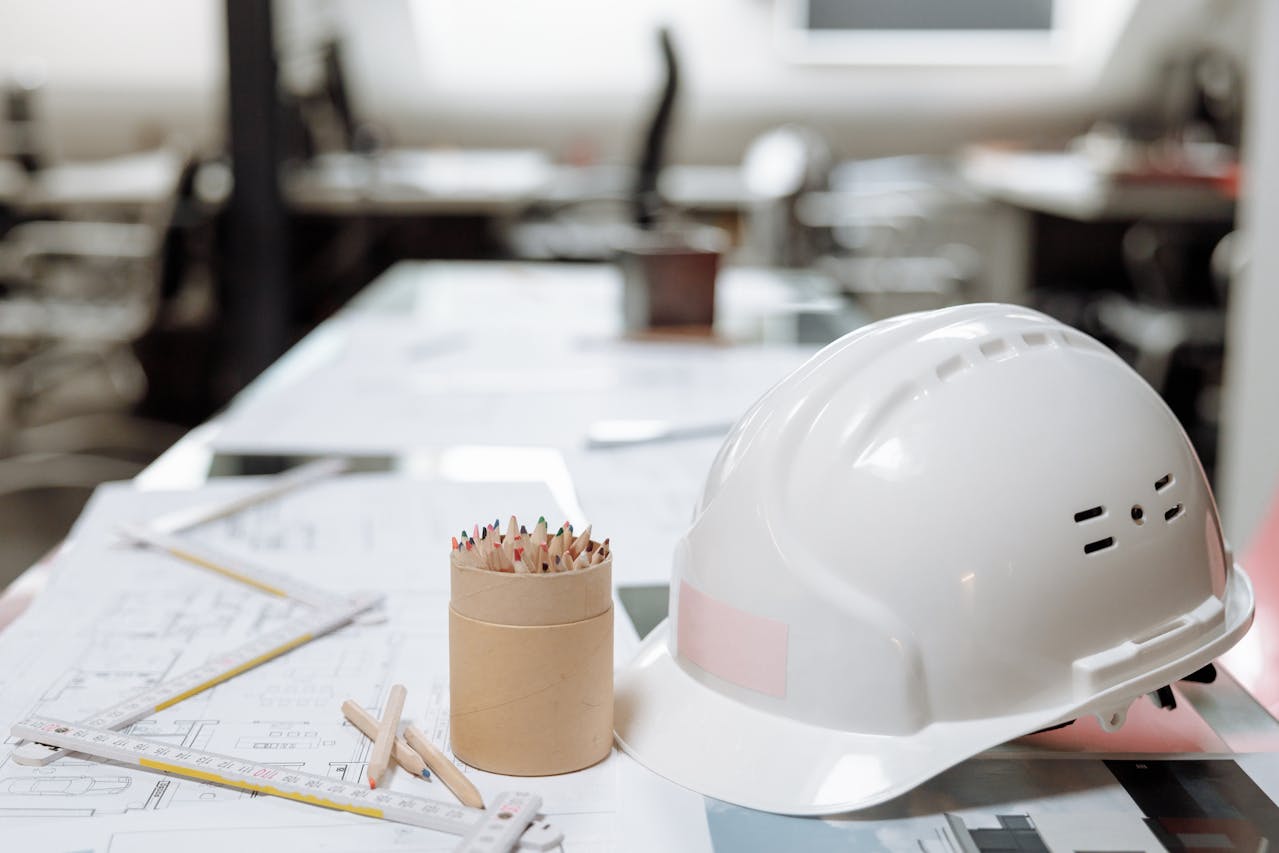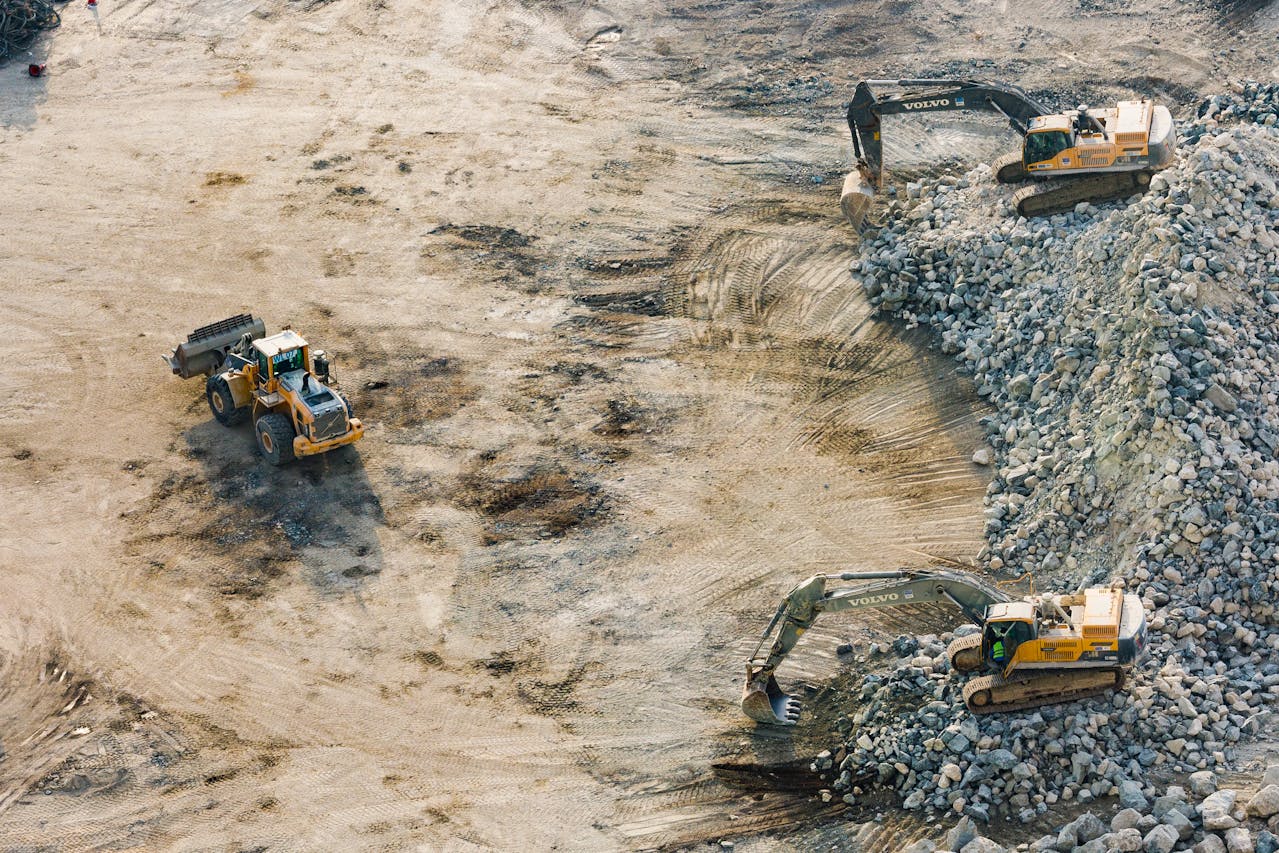Auto repair shop buildout permits in Dallas cover the approvals needed to construct, add to, or alter a facility and its service equipment. These permits ensure your automotive operations comply with city building codes and zoning requirements.
The City of Dallas requires permits for most building work and for installing, replacing, or removing mechanical, electrical, and plumbing systems. Before any buildout, we confirm your shop’s allowed use under the Dallas Development Code and coordinate early with Dallas Development Services. Building Inspection can clarify zoning and guide the permitting process.
How Do Dallas Zoning And Use Regulations Affect An Auto Repair Buildout?
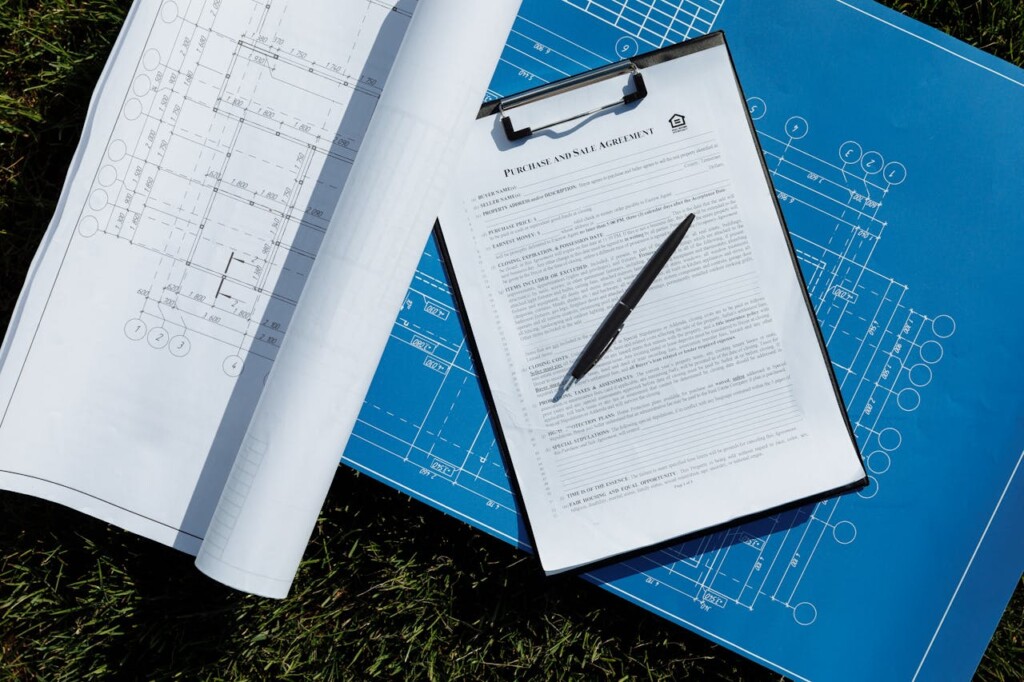
Dallas zoning determines where automotive operations can legally operate and directly impacts which permits we need for construction. Property zoning classification controls what activities are permitted on a site before any buildout begins. We coordinate with Dallas Development Services during early planning to ensure the chosen property aligns with the intended business operations.
The Dallas Development Code Use Regulations provide specific automotive classifications that define operational scope. Vehicle or Engine Repair or Maintenance covers general repair work including engine diagnostics, brake service, and transmission repair. This represents the most common classification for full-service automotive facilities. Auto Service Center addresses quick maintenance operations like oil changes, tire rotation, and basic inspections with faster customer turnaround.
Additional automotive classifications include Car Wash facilities, Vehicle Display Sales and Service for dealership operations, and Motor Vehicle Fueling Station for gas station components. Each classification carries different site requirements, parking ratios, and operational restrictions. We evaluate the primary business activities to determine the most appropriate use category during site selection.
Related commercial use categories may apply depending on facility scope and services offered. Building Repair and Maintenance Shop covers general construction and repair services. Machine or Welding Shop applies to facilities with fabrication capabilities. Tool or Equipment Rental may be relevant for shops offering equipment services alongside repair work.
Property management considerations include Surface Parking requirements, Outside Storage regulations for parts and vehicles, and Vehicle Storage Lots for long-term parking. These ancillary uses often require separate zoning verification and can affect site layout and construction planning. We verify all applicable use categories during the zoning review process to avoid design conflicts.
Early zoning verification prevents costly redesigns and construction delays. Property zoning affects everything from building setbacks and height restrictions to parking requirements and operational hours. We contact Building Inspection at 214-948-4480 to confirm zoning compliance before finalizing site selection and beginning design work. This verification process identifies any needed zoning changes or special use permits before construction planning begins.
What Permits And Submissions Does Dallas Require For An Auto Repair Shop Buildout?
Dallas requires building permits for any construction, addition, alteration, or demolition of structures, as well as work on service equipment including HVAC, electrical, and mechanical systems. The permit process covers the physical buildout of service bays, installation of lifts and equipment, and any modifications to existing facilities.
As of May 1, 2024, all commercial applications must be submitted through the city’s online portal. This requirement applies to every auto repair shop project, from tenant improvements to new construction facilities.
Required Documentation And Plan Submissions
The City of Dallas requires two complete sets of construction plans for review. These plans must detail every aspect of your auto repair facility buildout, including structural modifications, equipment installations, and system upgrades.
For projects involving structural changes or major mechanical systems, Texas state law requires plans sealed by a licensed professional engineer or architect. We coordinate with these specialists during design development to ensure all technical requirements are met before submission. The sealed plans demonstrate compliance with structural loads, ventilation requirements, and safety systems specific to automotive repair operations.
Detailed specifications must accompany the construction drawings. These specifications cover materials, equipment, and installation methods for specialized automotive systems like exhaust removal, compressed air distribution, and hydraulic lift installations.
Plan Review Process And Timelines
The typical permit process includes three phases: application submission through the DevelopDallas portal, plan review by multiple city departments, and required inspections during construction. Each phase requires specific documentation and coordination to maintain project momentum.
Current plan review timelines vary by project scope. Commercial remodel projects, which include most auto repair shop tenant improvements, typically require about 12 business days for first review. New commercial construction projects, such as ground-up auto repair facilities, generally take 20 or more business days for initial review.
Dallas offers expedited plan review through the Q-Team service for time-sensitive projects. This service accelerates the review process for an additional fee, often resulting in faster permit approval for projects with tight construction schedules.
Trade Permits And Licensed Professionals
Separate trade permits are required for electrical, plumbing, and mechanical work. Licensed professionals must obtain these permits before beginning any specialized installations. Electrical permits cover service upgrades, equipment connections, and lighting systems. Plumbing permits address compressed air systems, waste oil handling, and wash bay drainage. Mechanical permits cover ventilation systems, equipment exhaust, and HVAC installations.
Each trade permit requires its own application, plans, and review process. We coordinate these applications with our specialty subcontractors to ensure proper sequencing and avoid delays. The permit holder for each trade is responsible for scheduling their own inspections and ensuring code compliance.
Inspection Scheduling And Requirements
Inspections occur at critical milestones throughout construction and must be scheduled by the permit holder. The City of Dallas provides online inspection scheduling or you can call the automated inspection line at 214-670-5313. We manage this process for our clients, coordinating inspections at appropriate construction phases to maintain project flow.
Required inspections typically include foundation work, framing modifications, rough-in inspections for all trade work, and final inspections before occupancy. Each inspection must pass before proceeding to the next construction phase, making proper preparation essential to avoid work stoppages.
Which Environmental Permits And Compliance Apply To Auto Repair Shops In Dallas?
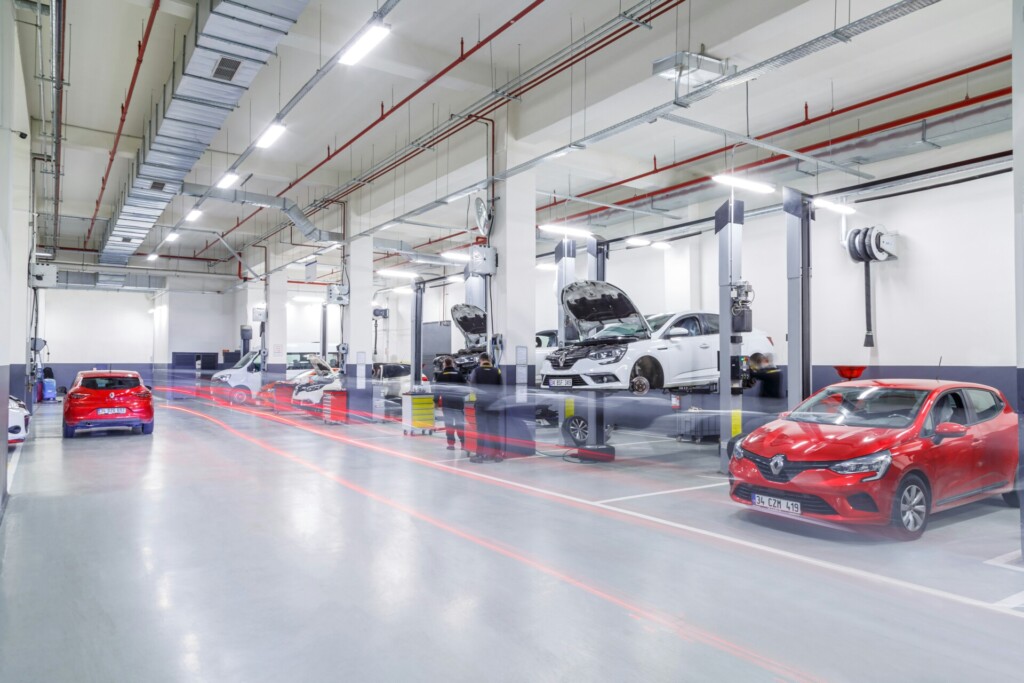
Beyond building permits, auto repair facilities in Texas face environmental regulations that require specific authorizations before construction or modification. We coordinate these requirements early to prevent project delays and ensure compliance throughout the buildout process.
Air Quality Authorizations
TCEQ mandates air authorizations for facilities generating emissions above de minimis levels. De minimis status applies to very low emission operations using less than 50 gallons of cleaning solvents annually. When operations exceed these thresholds, Permits by Rule or State Air Quality Permits become necessary.
Common PBRs for automotive facilities include several categories based on operational activities. Parts washing and degreasing operations fall under PBR 106.454, while manual grinding, buffing, and drilling activities use PBR 106.265. Surface coating and painting operations require PBR 106.433, and fuel dispensing systems need PBR 106.412.
Heat-cleaning devices utilize PBR 106.495, steam cleaning operations apply PBR 106.411, and acid-bath cleaning processes require PBR 106.375. Soldering, brazing, and welding activities use PBR 106.227, while comfort heating systems fall under PBR 106.102. Used oil burners operate under PBR 106.181.
Nonattainment Area Requirements
Dallas-Fort Worth operates as an ozone nonattainment area, creating additional compliance obligations. VOC limits apply to coatings and solvents used in operations, regardless of permit type. Gasoline dispensing facilities may require Stage I and Stage II vapor recovery systems to control emissions during fuel transfers.
We evaluate these requirements during design development to integrate necessary controls into facility layouts. Paint booth ventilation systems must meet enhanced specifications, and solvent storage areas require specific containment measures to prevent emissions.
Storage Tank Regulations
Underground storage tanks (USTs) and aboveground storage tanks (ASTs) operating under TCEQ jurisdiction require compliance with technical standards, registration, and monitoring protocols. We coordinate tank installations with environmental consultants to ensure proper permitting and installation procedures.
Tank systems storing petroleum products over 1,100 gallons need registration and ongoing compliance monitoring. Release detection systems, inventory controls, and spill prevention measures become integral to facility design and operation.
Waste Management Requirements
Auto repair operations generate specialty wastes requiring specific handling protocols. Used oil management follows TCEQ registration and storage requirements, with containers clearly marked and spills reported when exceeding 25 gallons. Oil filters need complete drainage before disposal and cannot exceed six 55-gallon drums without additional registration.
Lead-acid batteries require proper storage and transportation to registered recyclers. Scrap tires need manifested removal by registered transporters, with outdoor storage limited to 500 tires without additional permitting. Antifreeze handling depends on hazardous waste determination, and cleaning sludges from parts washers may require hazardous waste classification.
Wastewater Discharge Options
Industrial wastewater from vehicle washing, floor cleaning, and equipment maintenance requires proper disposal pathways. Discharge to sanitary sewer systems needs written approval from the local POTW operator, who establishes specific pretreatment requirements and monitoring protocols.
Direct discharge to state waters requires TCEQ permits with stringent treatment and monitoring requirements. We typically design facilities to minimize wastewater generation and coordinate early with local utilities to establish feasible discharge arrangements.
Record keeping, emissions inventory reporting, and spill notification protocols form the ongoing compliance framework. We establish these systems during construction to support long-term facility operations and regulatory compliance.
How Should You Plan Preconstruction To Avoid Permit Delays?
Space programming establishes the foundation for successful preconstruction planning. We start by confirming the intended use under the Dallas Development Code, aligning operational requirements with zoning restrictions before detailed design begins. This verification process with Dallas Development Services prevents costly redesigns later in the process. Vehicle or Engine Repair operations require different site considerations than Auto Service Centers, affecting everything from bay layouts to waste management systems.
Coordination with permit authorities happens early in our planning timeline. We schedule pre-development meetings with Dallas Development Services to discuss project scope, code requirements, and submittal expectations. These collaborative sessions help identify potential compliance issues before they become permit bottlenecks. The city’s pre-development meetings occur Tuesday through Thursday and provide direct access to reviewers who will evaluate our final submissions.
Site evaluation drives critical design decisions that affect permit approval timelines. We assess utilities, drainage patterns, and access routes that directly impact bay construction, lift installations, and paint booth placement. Existing electrical service capacity determines whether upgrades are needed for equipment loads. Storm drainage evaluation identifies potential issues with wash bay discharge and prevents costly modifications during construction. Traffic patterns and access points must align with zoning requirements for automotive facilities.
Critical path scheduling sequences construction activities to minimize permit delays. We coordinate bay construction with equipment installation and ventilation integration, ensuring inspections occur at optimal project milestones. Paint booth installation requires careful timing with HVAC systems and fire suppression equipment. The critical path identifies dependencies between structural work, electrical installation, and final equipment commissioning. We build inspection scheduling into our timeline, anticipating the city’s review cycles.
Value engineering evaluates structural systems and building components for lifecycle performance and constructability. We compare steel frame versus masonry construction based on project timeline, code requirements, and long-term maintenance considerations. Door assemblies for service bays undergo analysis for durability, insulation properties, and maintenance access. These decisions affect both permit approval timelines and construction efficiency.
Phased construction maintains operational continuity for tenant improvements and facility expansions. We coordinate construction zones to minimize disruption to existing operations while meeting code requirements for fire separation and egress. Temporary utility connections allow partial facility operation during buildout phases. The phasing strategy aligns with permit inspection sequences and environmental compliance requirements.
The city’s commercial permit activity dashboards provide real-time insight into review timelines and application volumes. We monitor these dashboards to anticipate processing delays and adjust our submission timing accordingly. Current data shows commercial remodel reviews averaging 12 business days, while new construction reviews extend beyond 20 business days. This information helps us set realistic project schedules and communicate accurate timelines to clients. Building Inspection at 214-948-4480 remains our primary contact for clarifying code requirements and coordinating throughout the preconstruction phase.
Conclusion And Next Steps
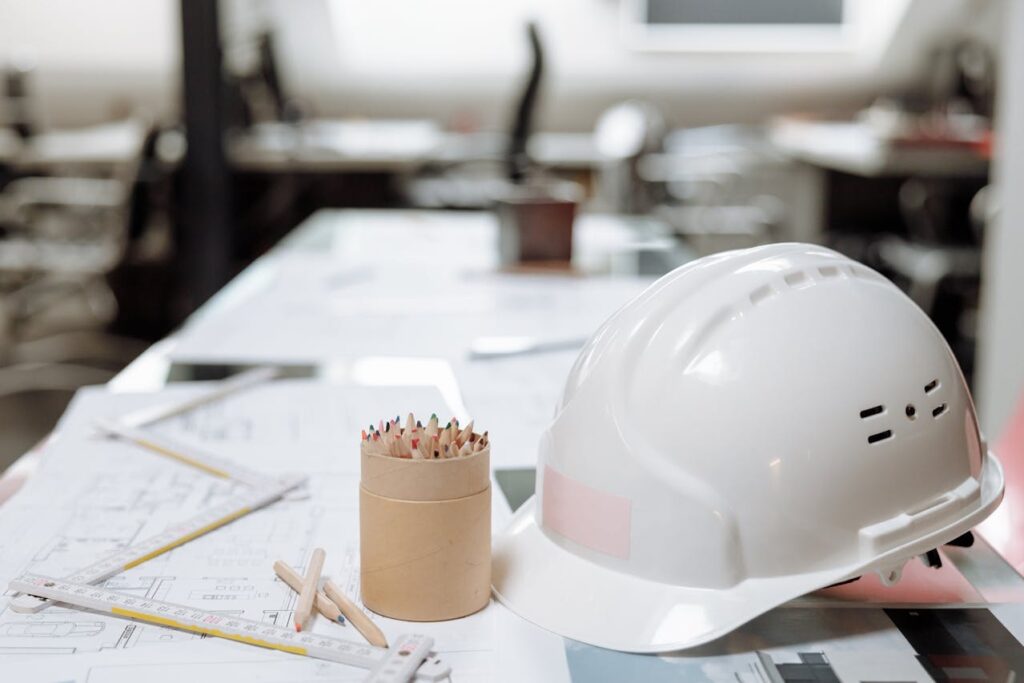
Start with zoning verification to confirm your shop’s allowed use under the Dallas Development Code. Prepare complete online submissions with two sets of detailed plans and required professional seals. Submit all commercial applications through the city’s online platform as mandated since May 2024.
Plan for typical review timelines of 12 business days for commercial remodels and 20+ business days for new construction, or consider Dallas’s Q-Team expedited review for time-sensitive projects. Schedule inspections at proper construction milestones using the automated line at 214-670-5313. Address environmental authorizations including Permits by Rule, storage tank compliance, and specialty waste handling protocols early in the process to avoid costly rework. Keep detailed records of all permits, inspections, and environmental compliance measures, and maintain coordination with Dallas Development Services and Building Inspection throughout your project.
EB3 Construction can align design, planning, and construction with these local requirements and typical automotive facility needs. Contact EB3 to discuss your auto repair shop buildout project.

